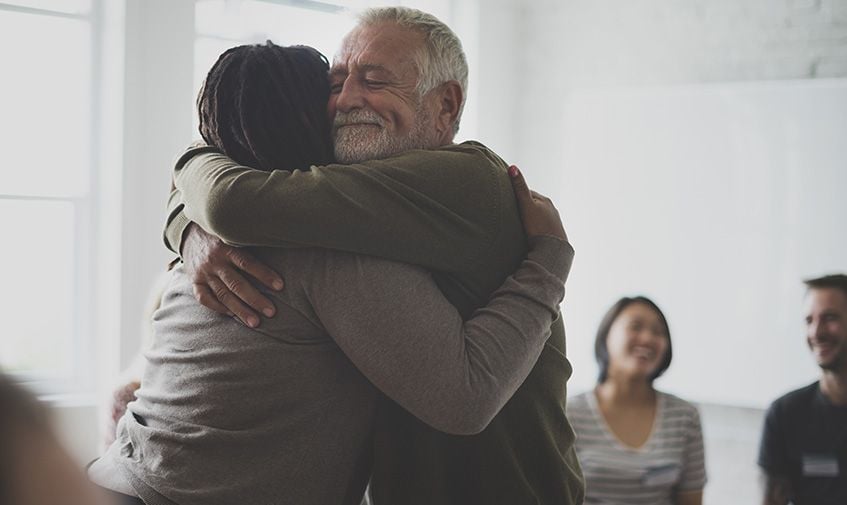Making A Difference to Another Cancer Patient

You’ve probably heard the saying, “You can’t truly understand someone until you’ve walked a mile in their shoes.” You have traveled the difficult path others are just beginning, you’ve experienced ups and downs, and you’ve probably learned some valuable, practical lessons along the way. Most importantly, you are proof that you can lead an active life after cancer.
Maybe you find yourself wondering, “What now?” after your cancer treatments are over. Perhaps while you were undergoing treatment, a cancer survivor helped you and now you feel compelled to pay-it-forward. Investing even a small amount of time volunteering can make a huge difference to patients undergoing cancer treatment.
Ways Cancer Survivors Can Help Patients
Whether you are an introvert or an extrovert, there are things you can do to brighten the lives of people being treated for cancer. As is the case with many volunteer opportunities, you can serve in a variety of ways. There are programs you can join that allow you to offer one-on-one assistance to a cancer patient directly. Or you can be a part of a support group that helps patients. If talking to others about cancer treatment and survivorship isn’t in your comfort zone, you can volunteer in more of a behind-the-scenes or administrative role. Opportunities abound, so the first step is to decide how much time you’re able to devote and whether you want to work directly with patients or in a supportive role.
If you’d like to work directly with cancer patients, depending on where you live, you may find programs that give you the opportunity to:
- Drive patients to and from their doctor appointments.
- Help cancer patients at home by doing their grocery shopping, taking them meals, or taking care of their pets.
- Help patients being treated for the cancer you experienced understand what to expect. Every patient’s experience is different, but hearing about your personal treatment journey will provide valuable insight.
- Accompany patients into their doctor appointments to be a notetaker.
- Visit patients who have had surgery while they’re recuperating in the hospital.
- Lead, co-lead, or be an active participant in a cancer support group.
- Volunteer your expertise to benefit cancer patients. Are you a masseuse? Cosmetologist? Home improvement contractor? Financial planner? You may have skills that can help patients feel better physically or address things they aren’t able to due to cancer.
If you’d like to help cancer patients in more of a behind-the-scenes role, consider:
- Teaming up with a local organization (or starting your own group) to create and distribute care packages to patients undergoing cancer treatment.
- Donating money to a cancer charity or launching your own fundraising drive.
- Volunteering to help with administrative tasks at a local cancer charity.
- Volunteering at a cancer-information hotline.
How to Find an Opportunity to Volunteer
If you’re interested in volunteering to help cancer patients, there are several ways to get started. If you know someone who is being treated for cancer, you can simply reach out and offer your assistance. Sometimes, people are reluctant to accept help even when they desperately want to! If you’re offering support to an individual, be specific and proactive. Instead of saying, “Please call me if I can help in any way!” say, “If it’s OK with you, I will stop by around noon on Monday to mow your yard (or pick up your shopping list, walk your dog, etc.).
If you’d like to be matched with a patient in need of support, the following programs can help you:
- Imerman Angels will screen you, match with a cancer patient in need of support, and provide training.
- American Cancer Society: Reach to Recovery, Colorectal Cancer Alliance Buddy Program, and Lung Cancer Alliance Phone Buddy Program match survivors of breast cancer, colorectal cancer, and lung cancer, respectively, with patients being treated for these diseases.
- Other cancer survivorship resources for Virginia Oncology Associates cancer patients and/or survivors.
Volunteering is a win-win; it helps ease cancer patients’ physical and emotional burdens and it will probably lift your spirits to know you’ve had a positive impact on someone during a difficult time in their life. You’re a survivor. Your experiences uniquely qualify you to help cancer patients during their time of need.

